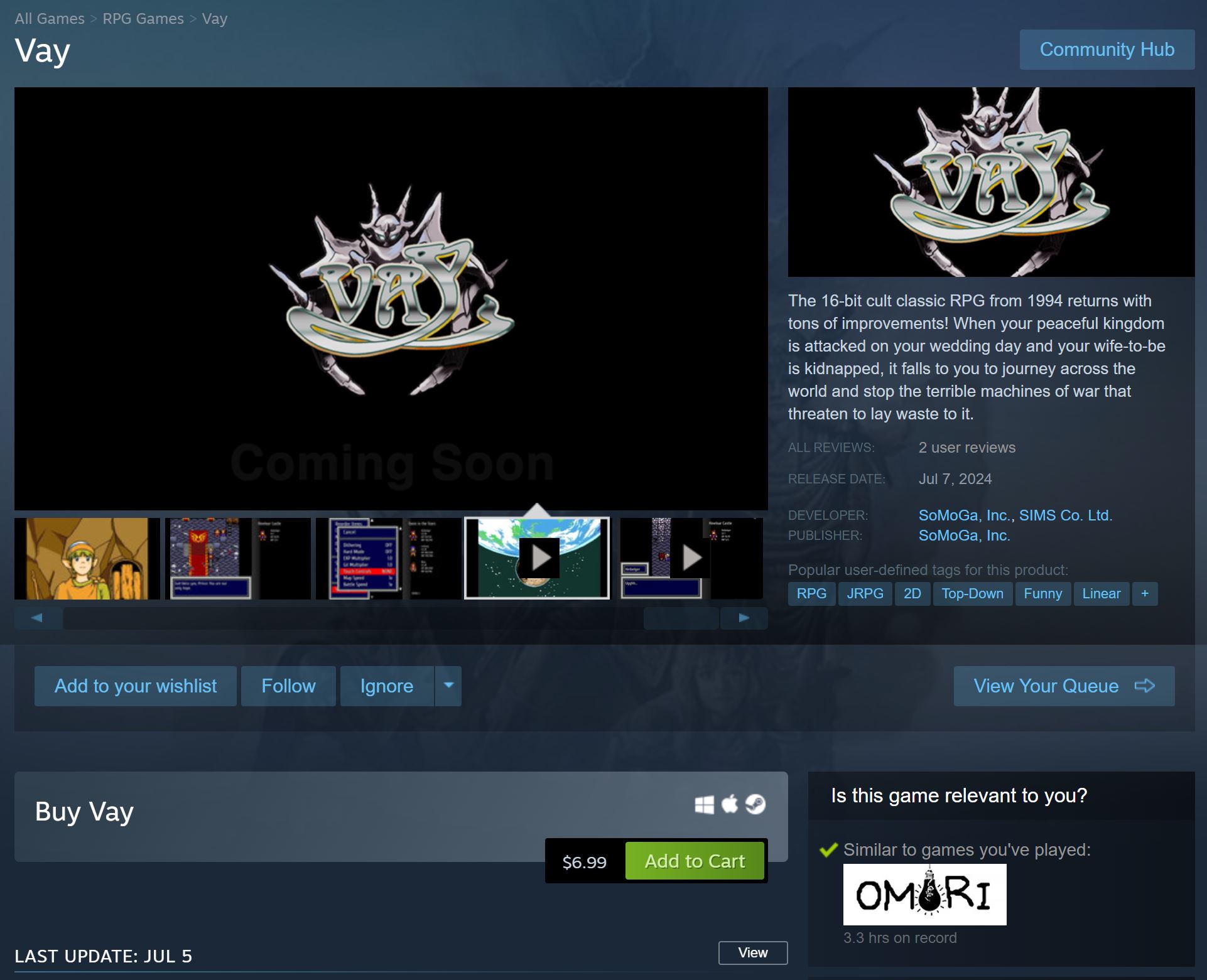
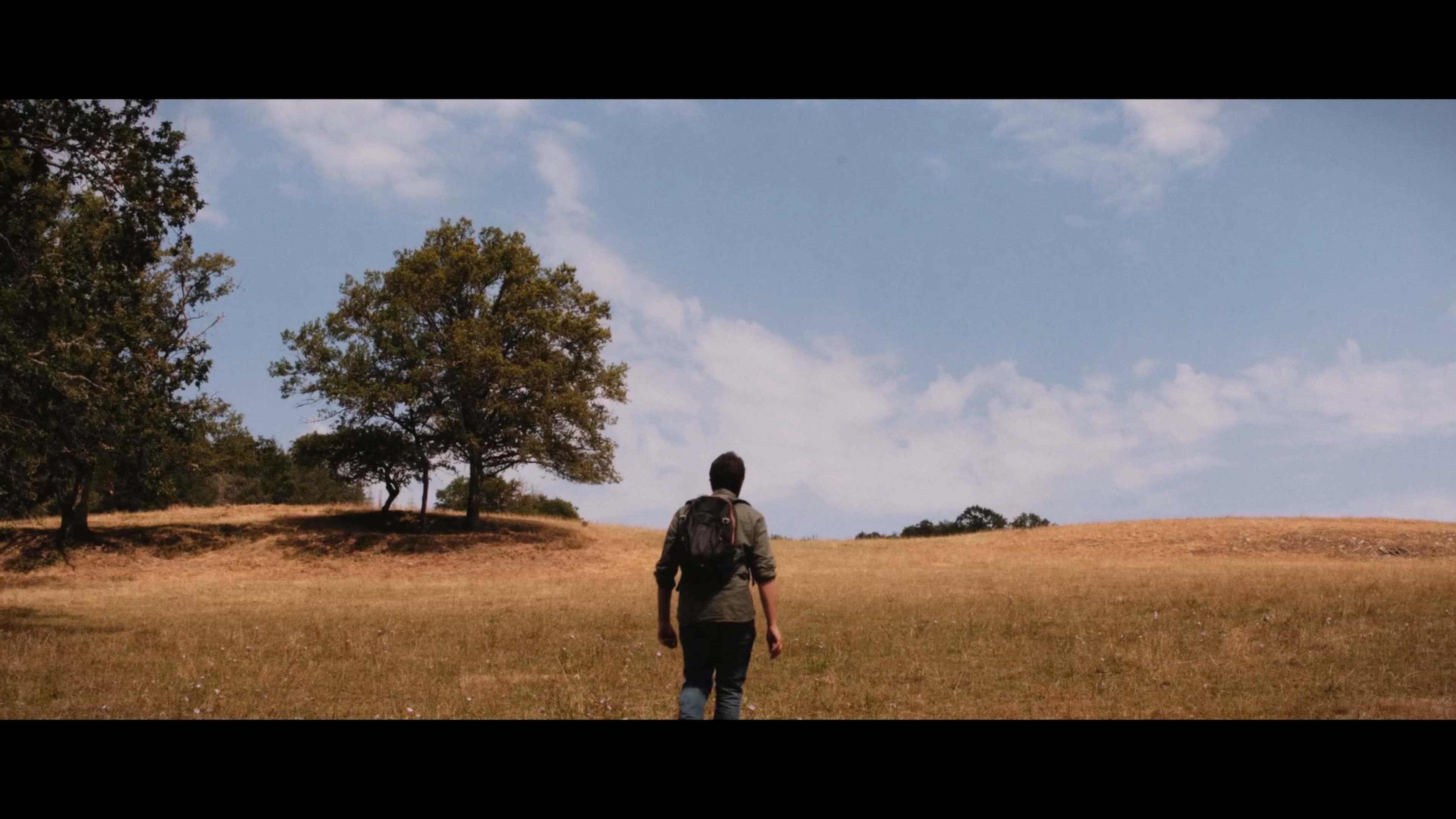
I am extremely busy. There are ten thousand things about which I wish I could blog. This game lasted 92 minutes and can be easily dispensed with, so it takes priority.

It's called The World After, and I got it a Steam sale or two ago. I played it because I was browsing a Steam sale recommendations thread but started feeling guilty about the massive amount of short games that I've bought but either haven't played or have left unfinished. I wanted a movie-like experience with which to relax one hectic evening, and according to How Long to Beat, this fit the bill, so off we go.
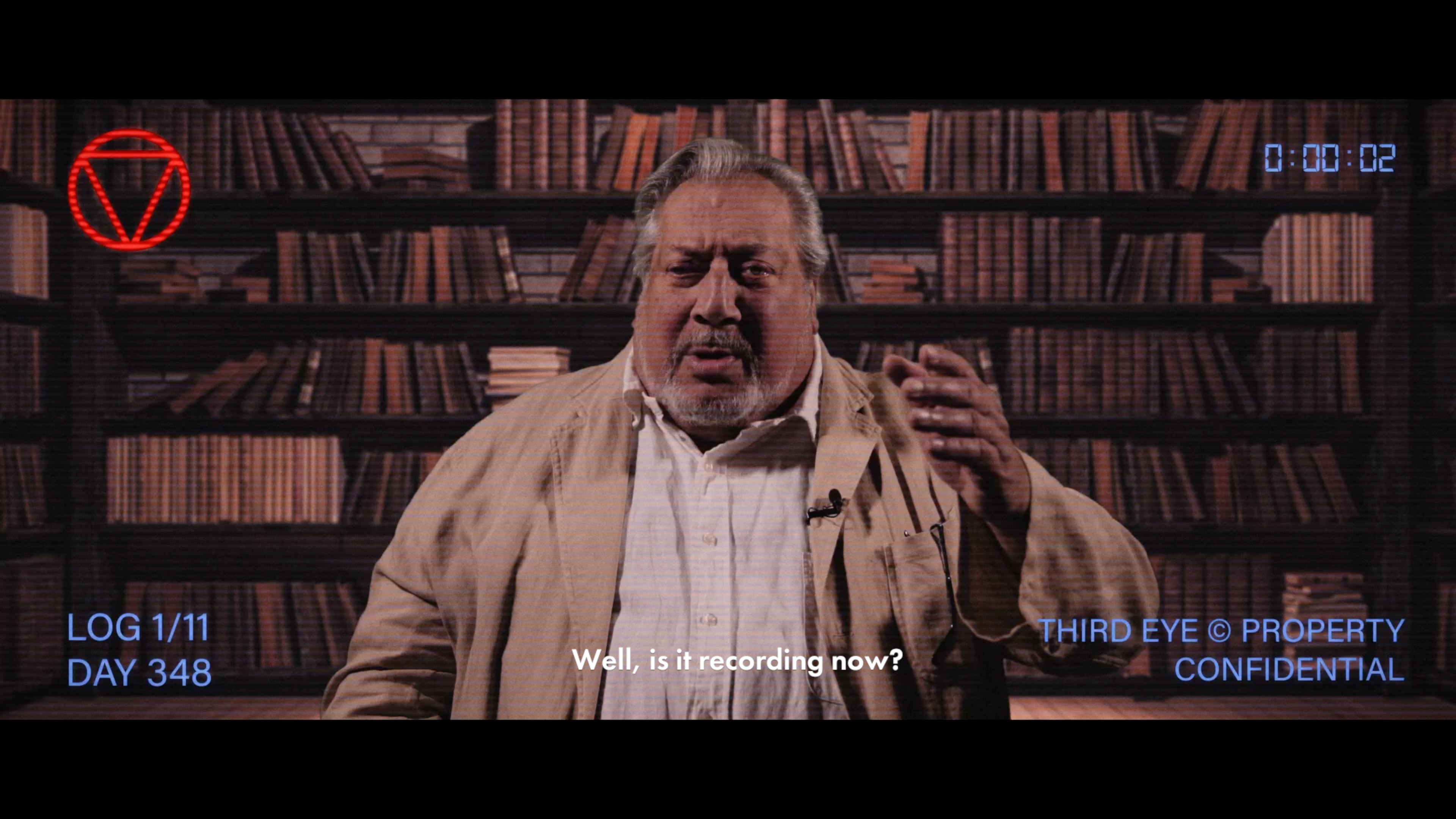
It's French. It's a pandemic game. A Parisian writer who's quarantined himself in the countryside is having nightmares about being caught in some kind of loop. Well, quarantine was like that. One morning, he finds a photo of a nearby castle slipped under his door with a note challenging him to come hither for no discernible reason, but having nothing better or suitably socially-distanced to do during the plague, off he sets.
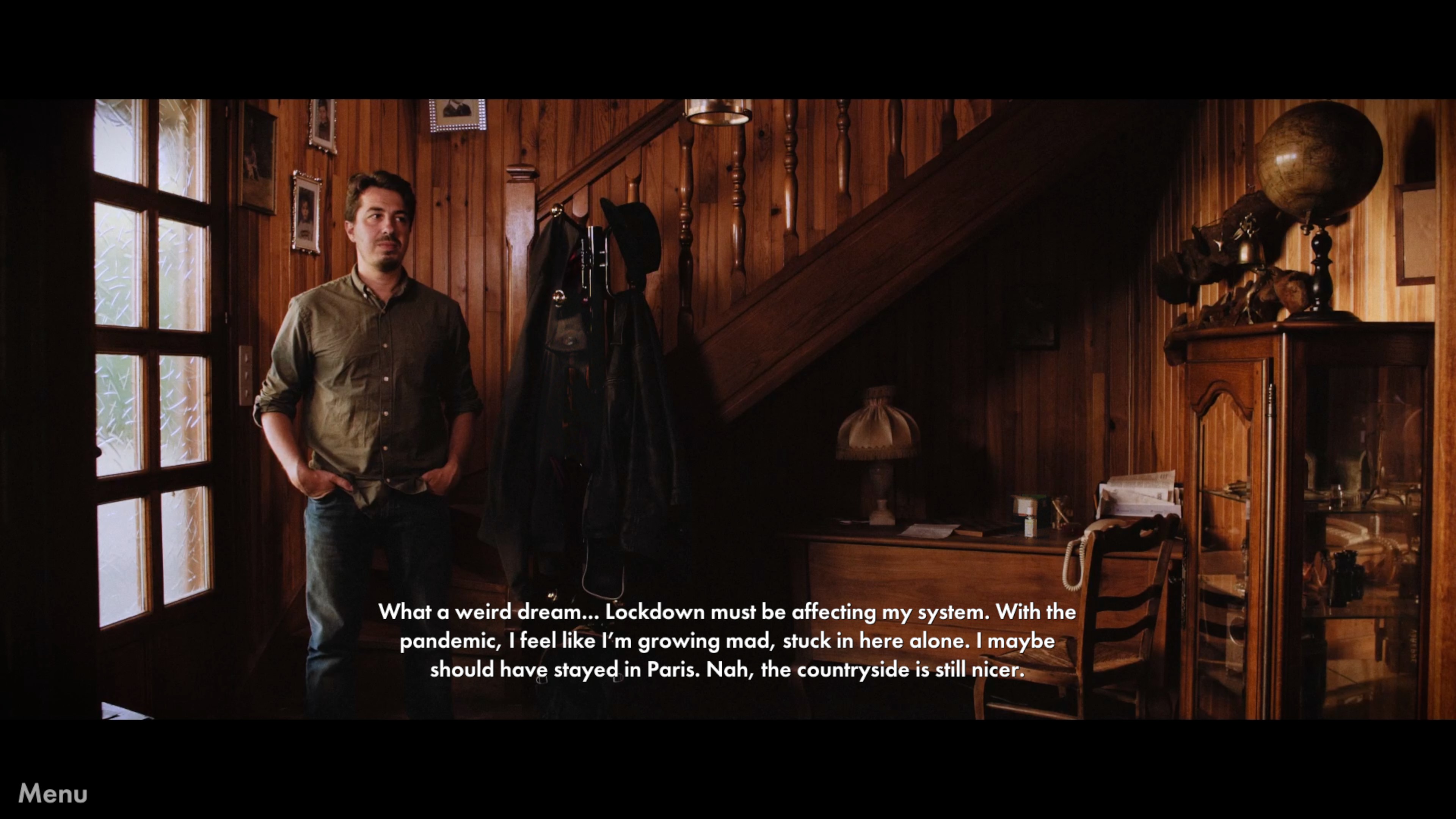
But even that is too much about the plot, as slight as it is, because the story's really kind of nonsense, and the little that manages to be coherent is wholly derivative. You're here for the presentation: smooth 4K FMV of a dude walking through the beautiful French countryside with minimal puzzle resistance.
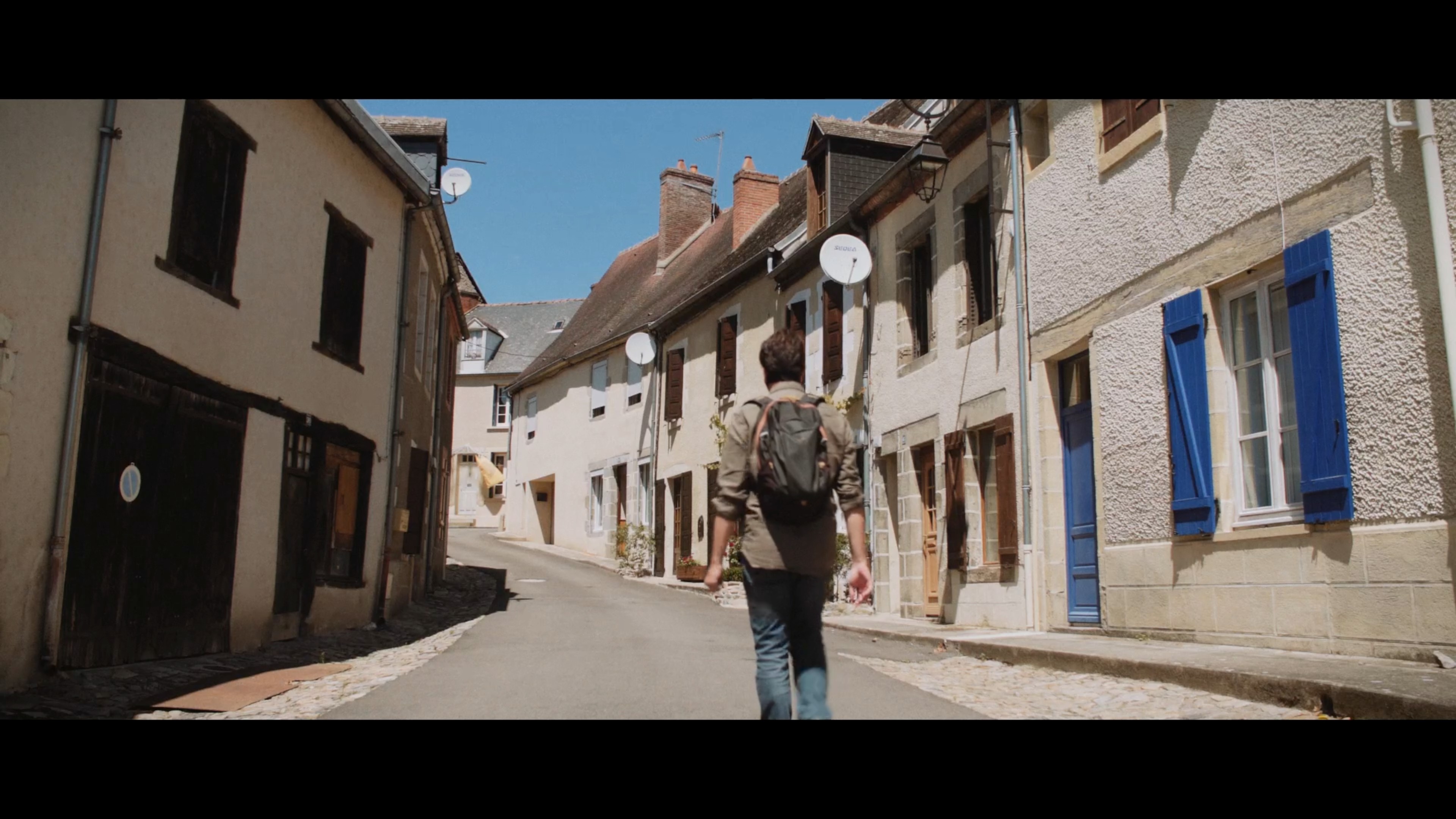
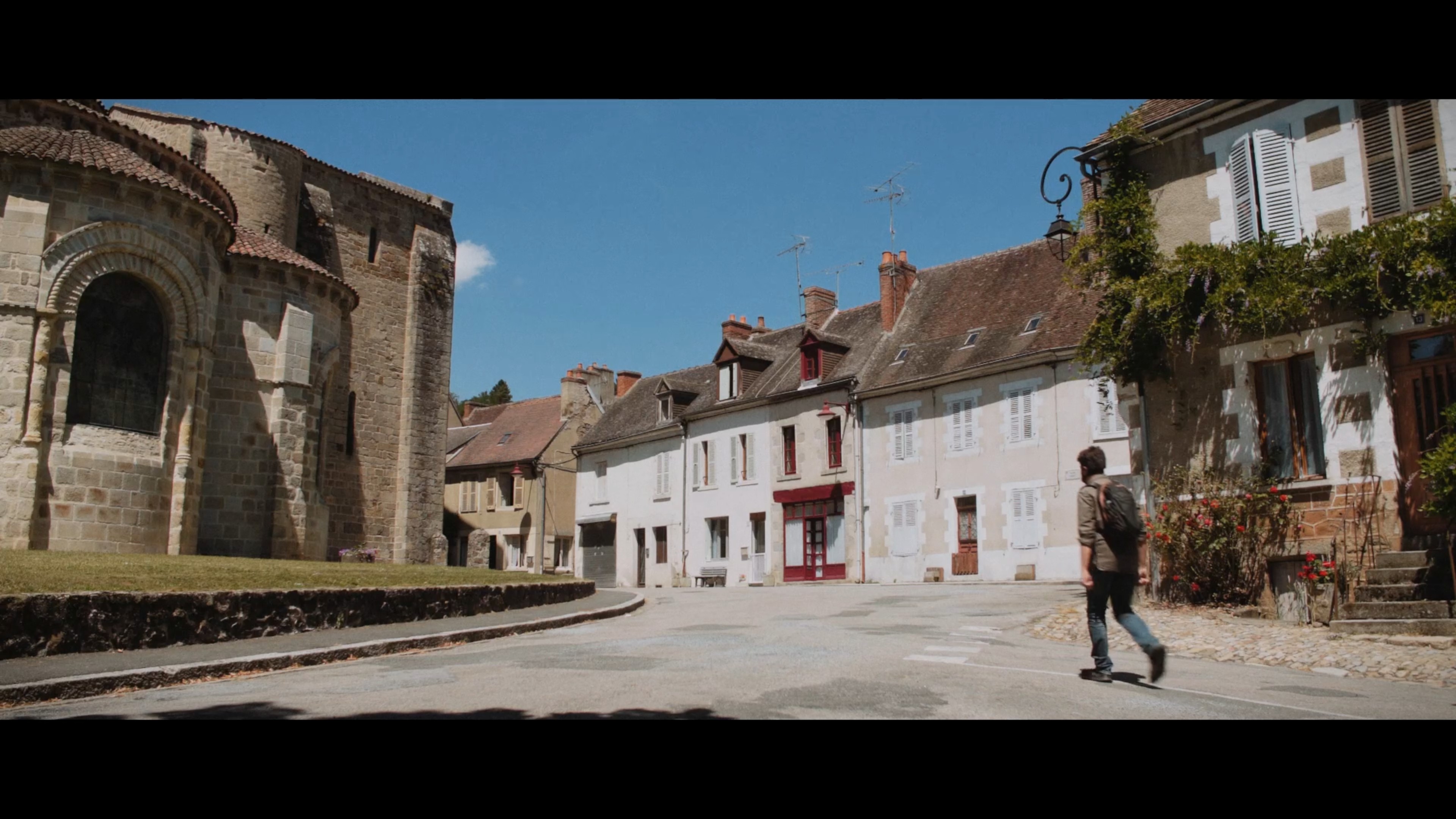



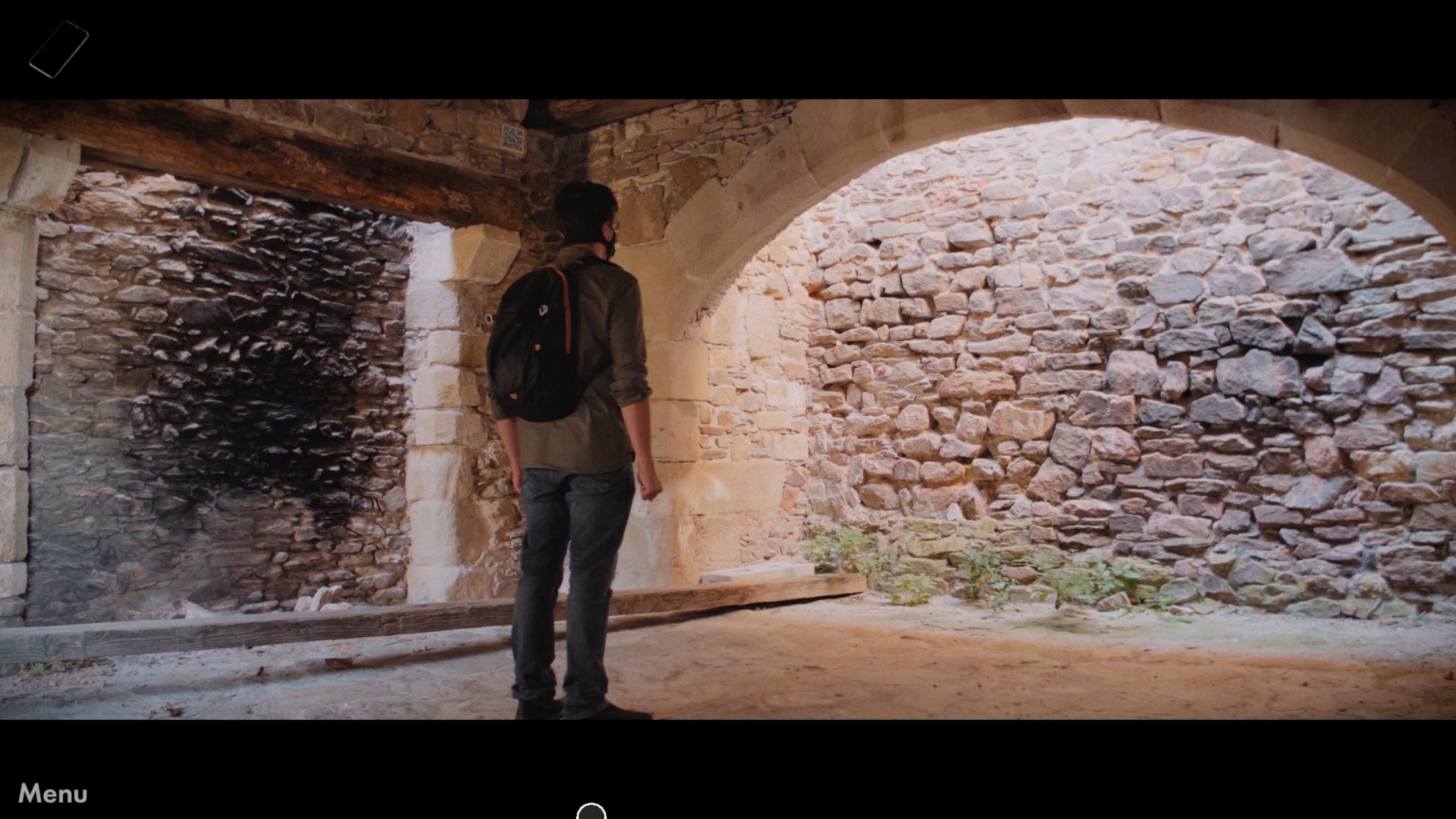
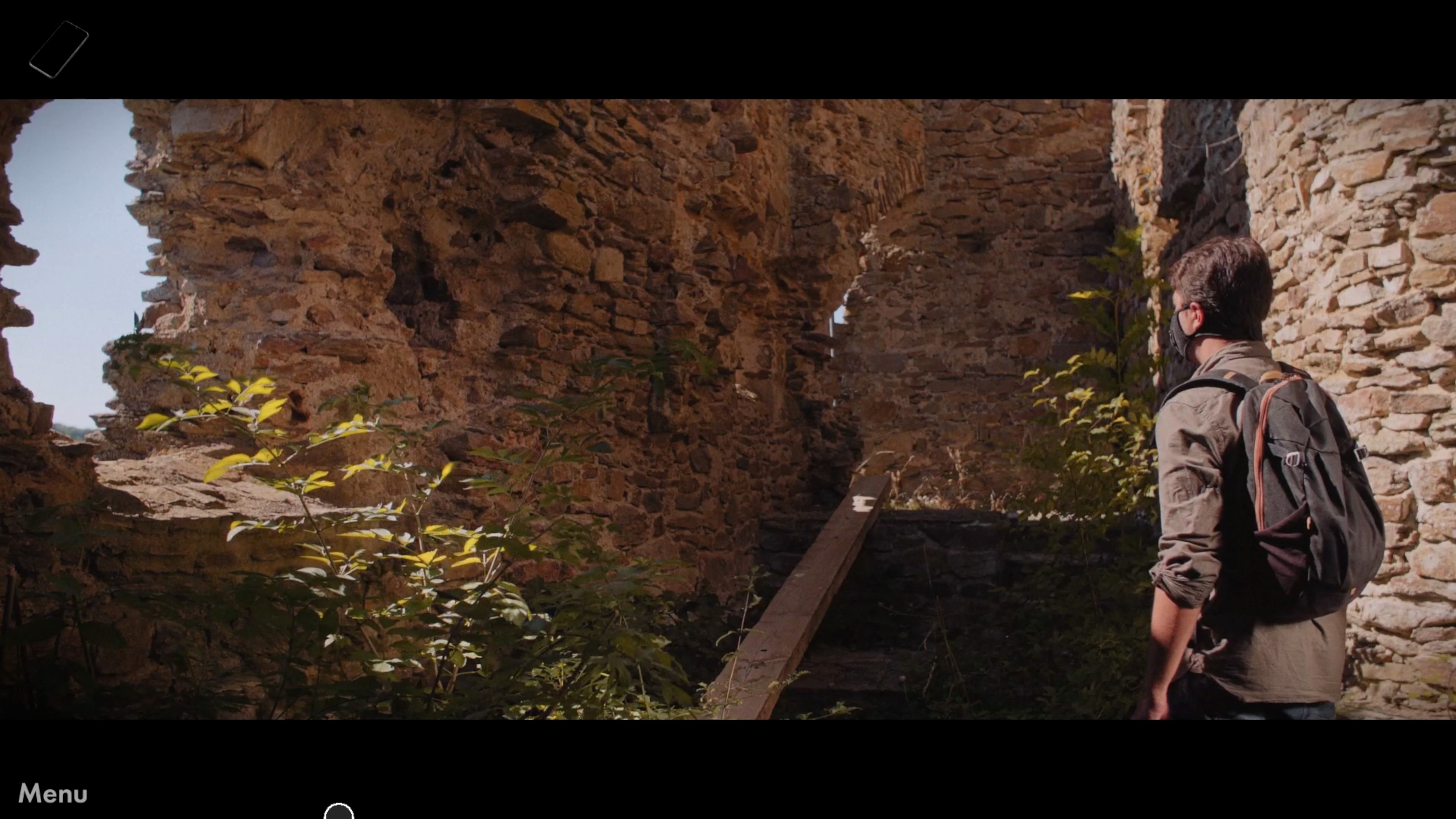
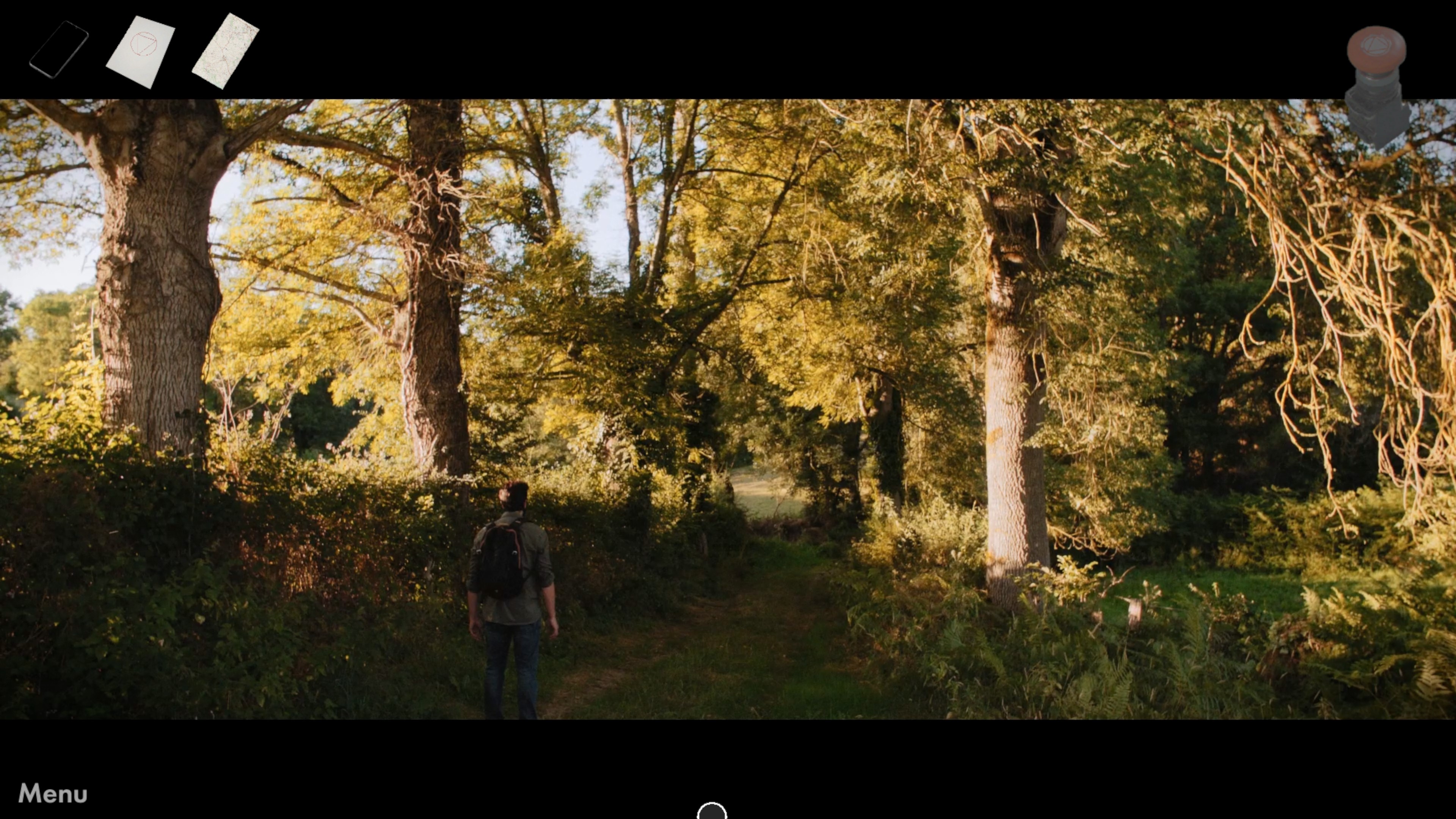
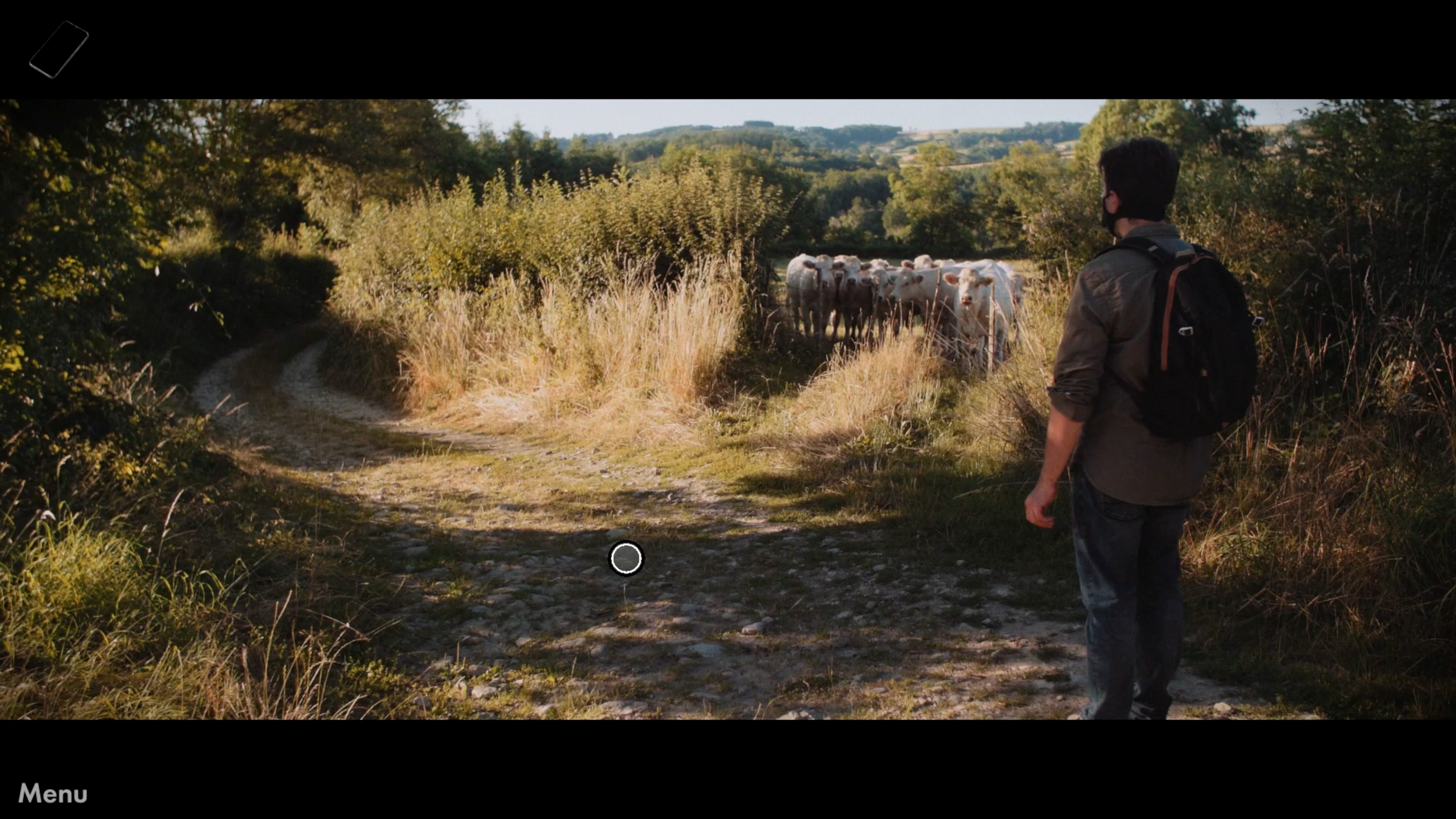
On that note, it delivers. I can't call it honest-to-goodness "good" in the traditional sense, but it's very pretty and admirable in an "I want to document my beloved home environment in an interactive format that others can experience" manner (see: the Carol Reed games). Sometimes, just wandering through a pretty environment with minimal frustration for a brief time is enough.
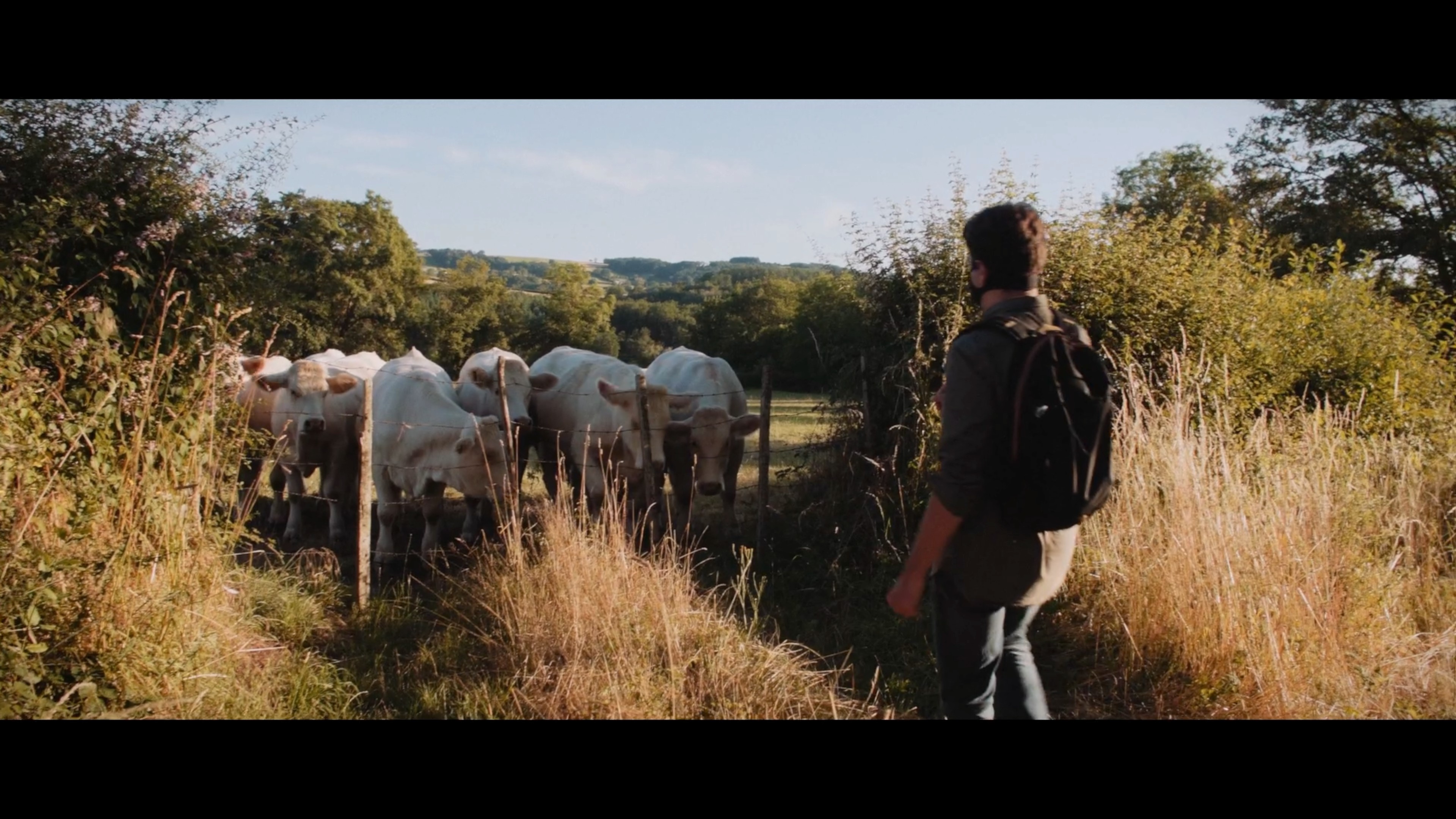
(Those cows run away when you approach them.)
With no meat on the narrative bone, though, this is more a game of moments.
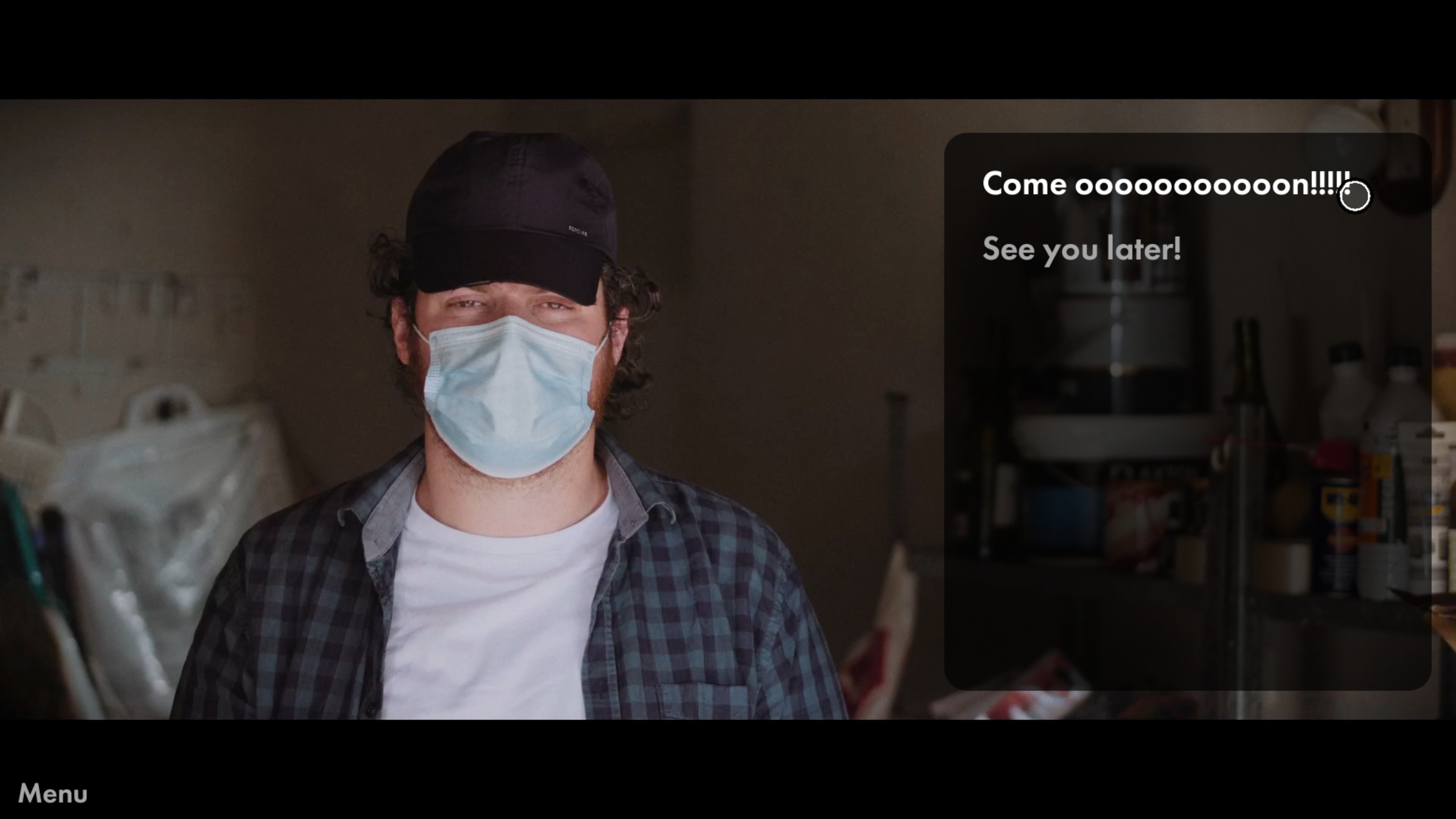
The quarantine setting means every cast member wears masks, which conveniently limits the need for lip-flap-matching in the English dub track.
(For this event, you also get five successive dialogue options that are variations of "Come ooooooon!" with more and more o's.)
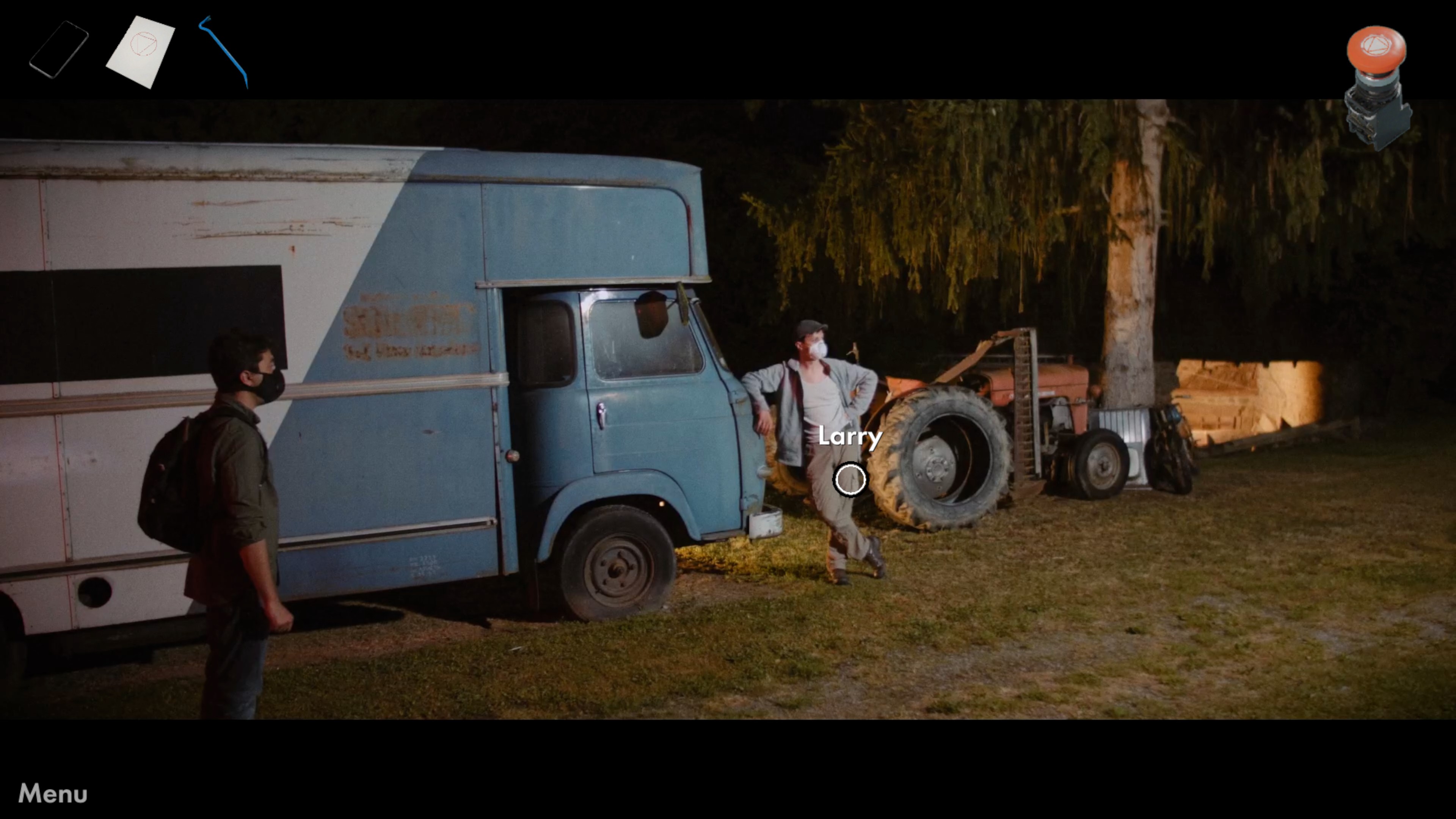
You make hand sanitizer out of aloe vera and a discarded bottle of vodka you find on the side of the road.
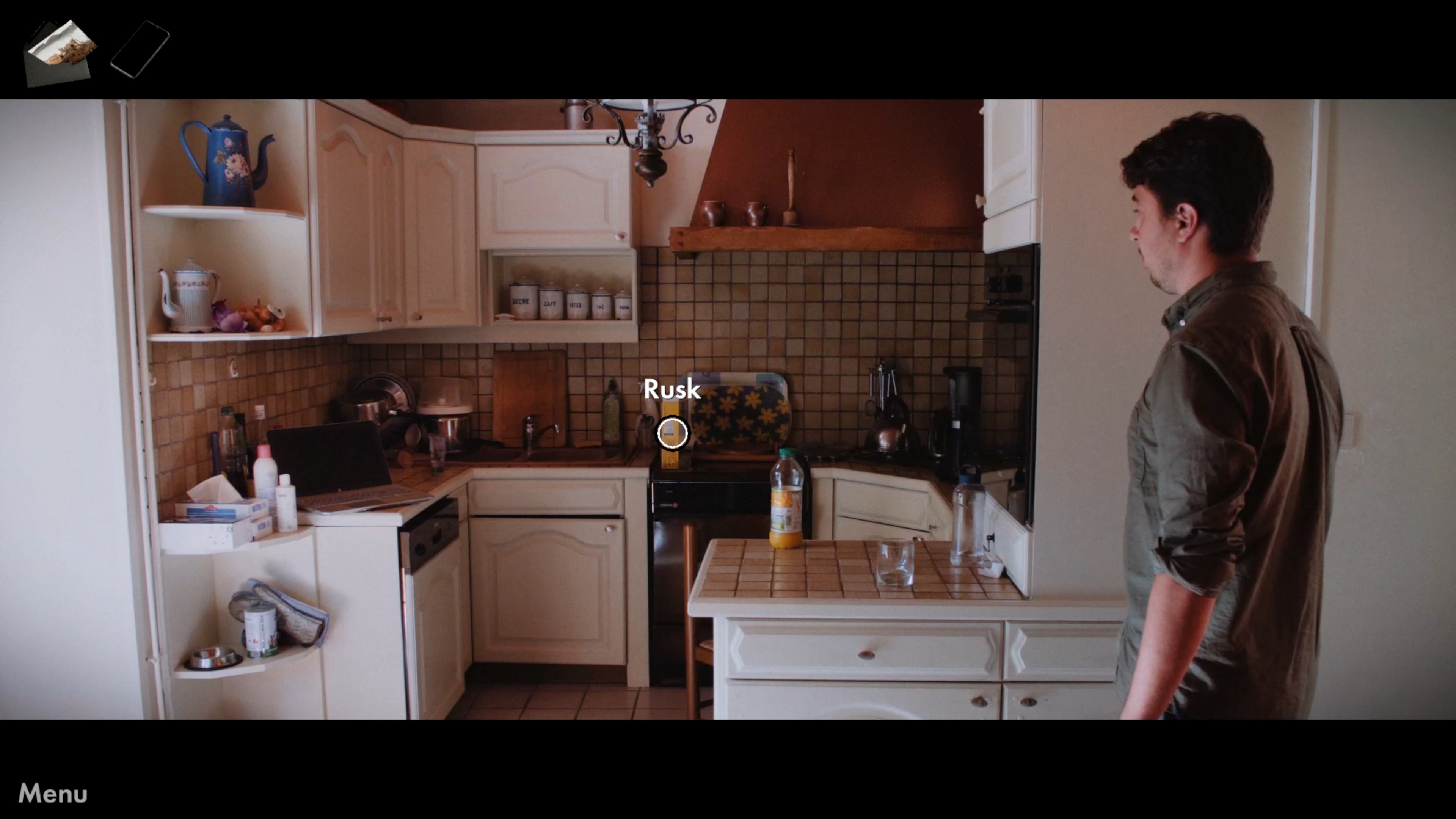
At one point, the main character can eat "rusk," which evidently is the UK term for something like crispbread but sure looks like graham crackers.
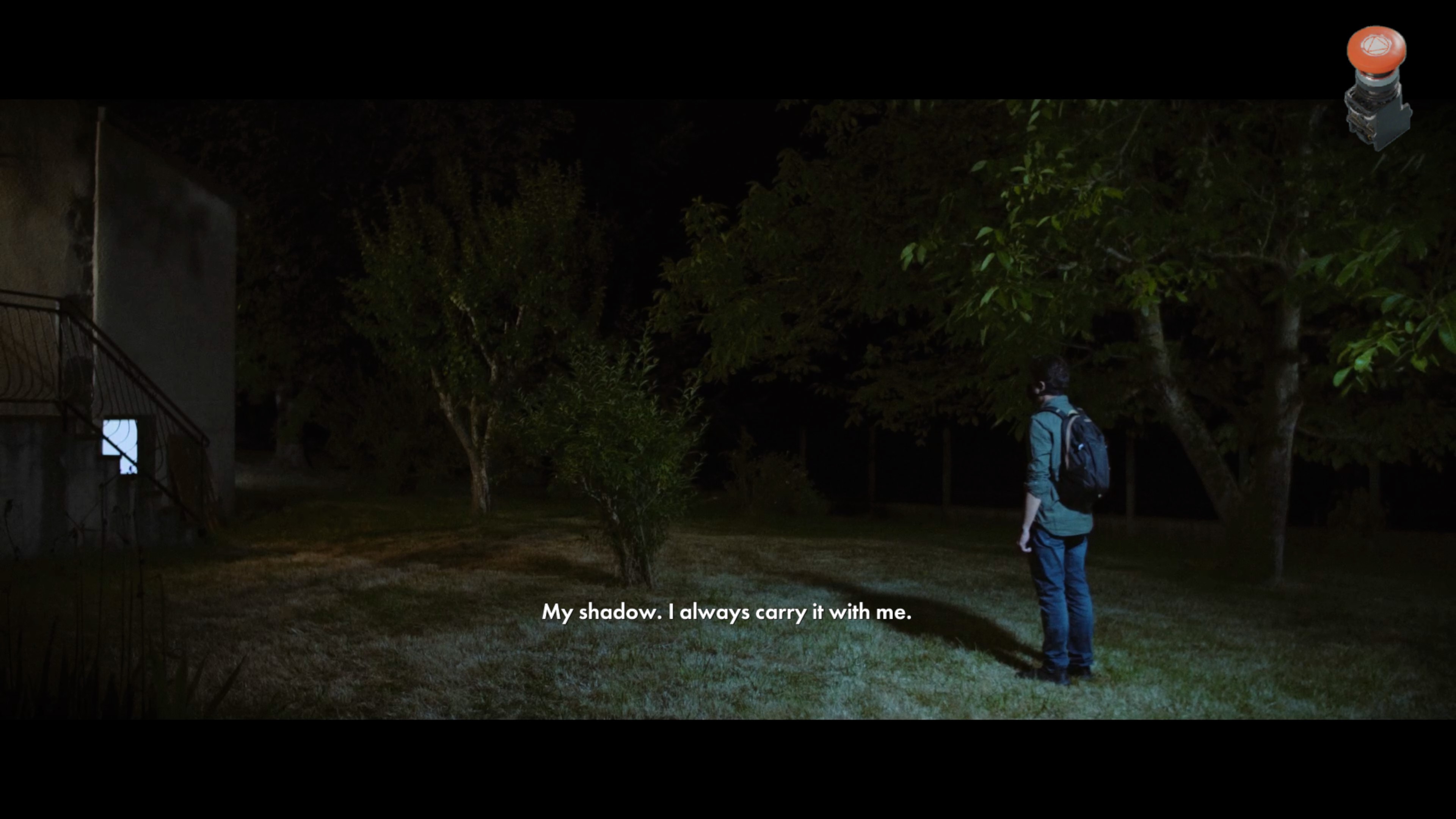
There's a Gabriel Knight reference, I understand, if you attempt to attack your shadow with your crowbar in this sequence.
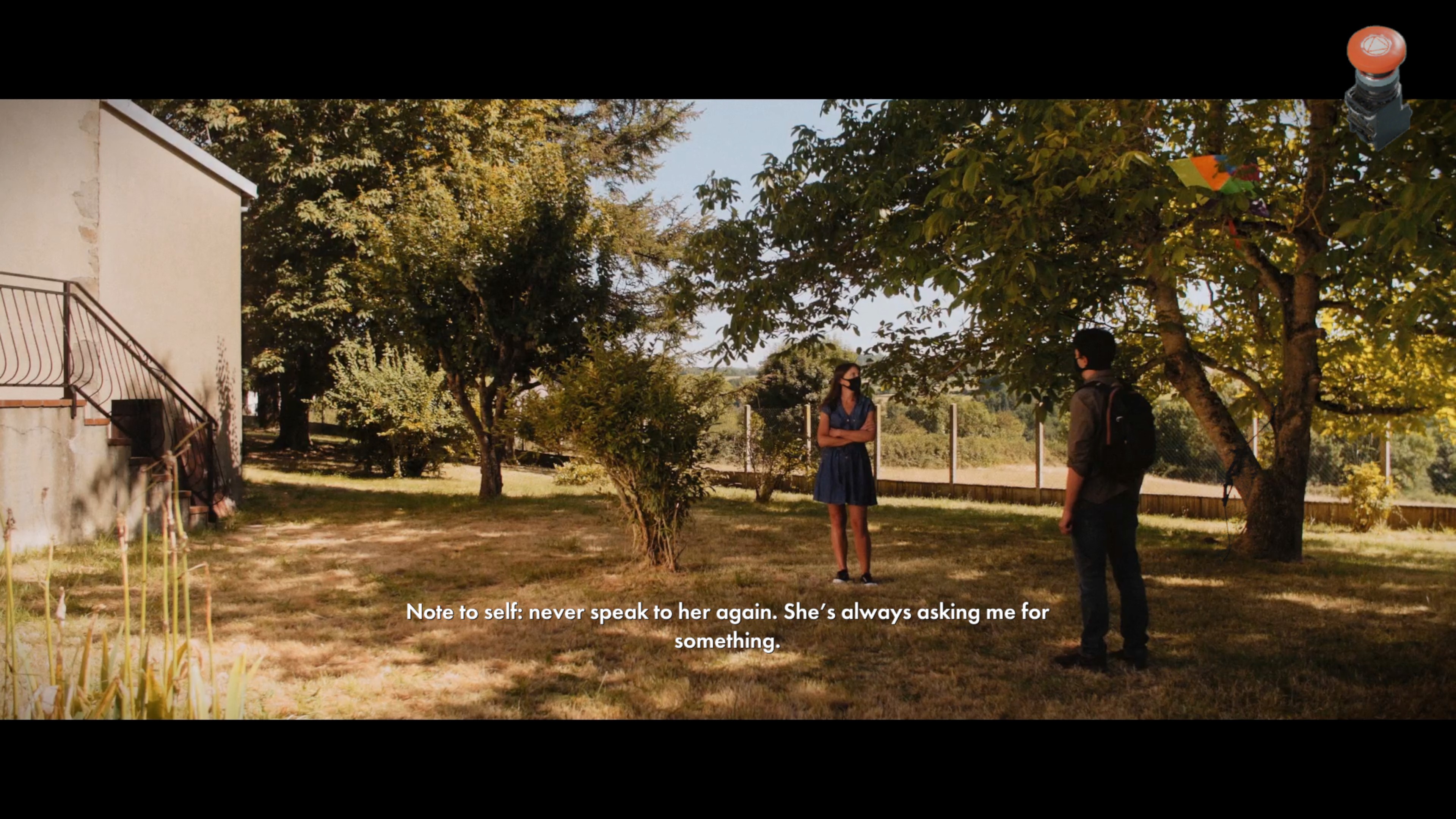
It also features - and this is kind of spoiling the turn in subject matter here, but it's noteworthy - a creature portrayed by an honest-to-goodness Halloween alien mask with light-up eyes like those compound work lights with numerous little bump-like lights inside. It's satisfying in the innocent fakey way 1950s monster movie props are.
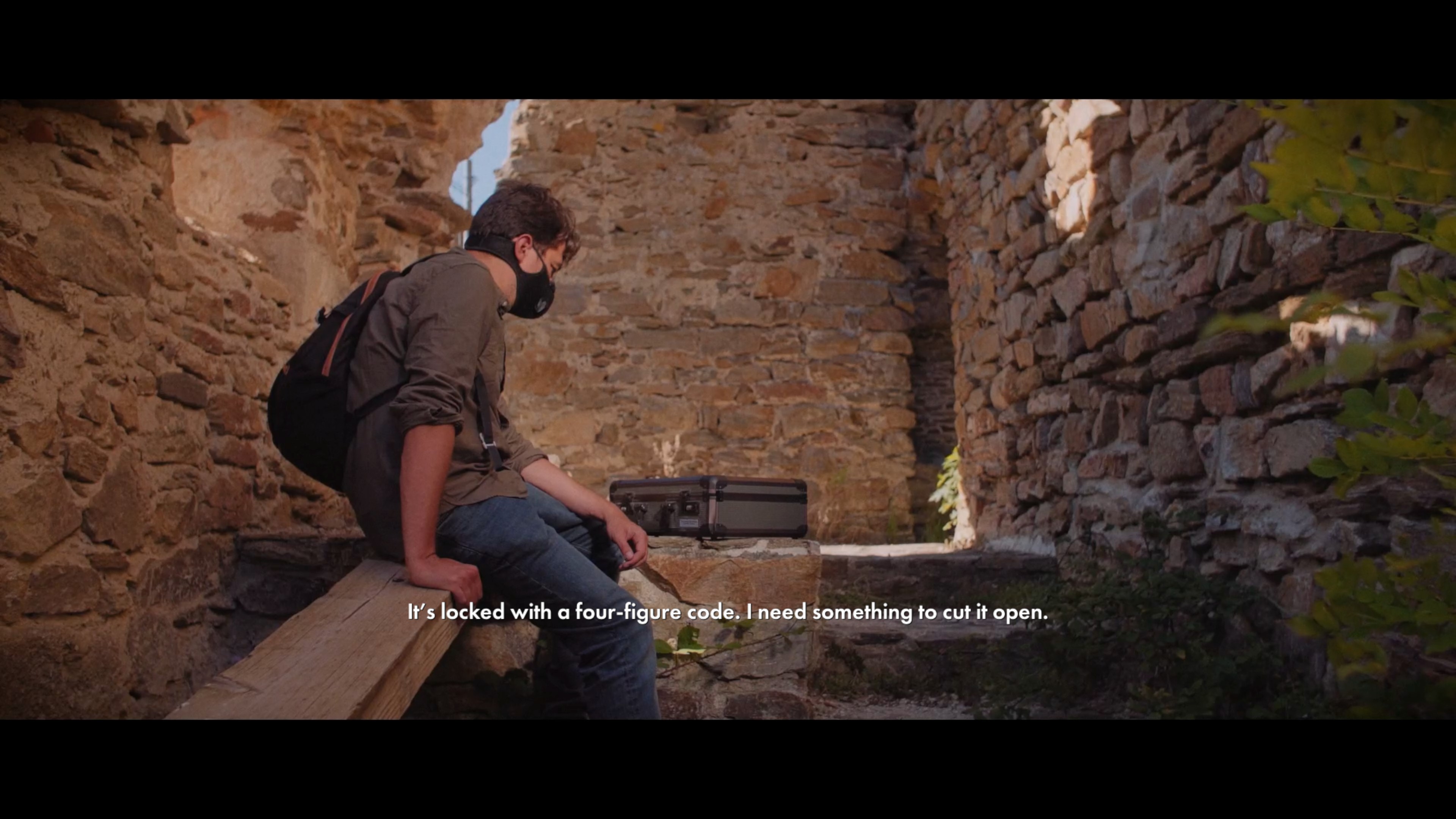
The sole determinant of whether you get the good or bad ending is whether you grab the gun in the above case early on or not. I, like any red-blooded American, grabbed the gun, as there was no immediate indication that being armed was a bad idea, as in Little Hope. This is a European game, though, and so firearms are not the answer.
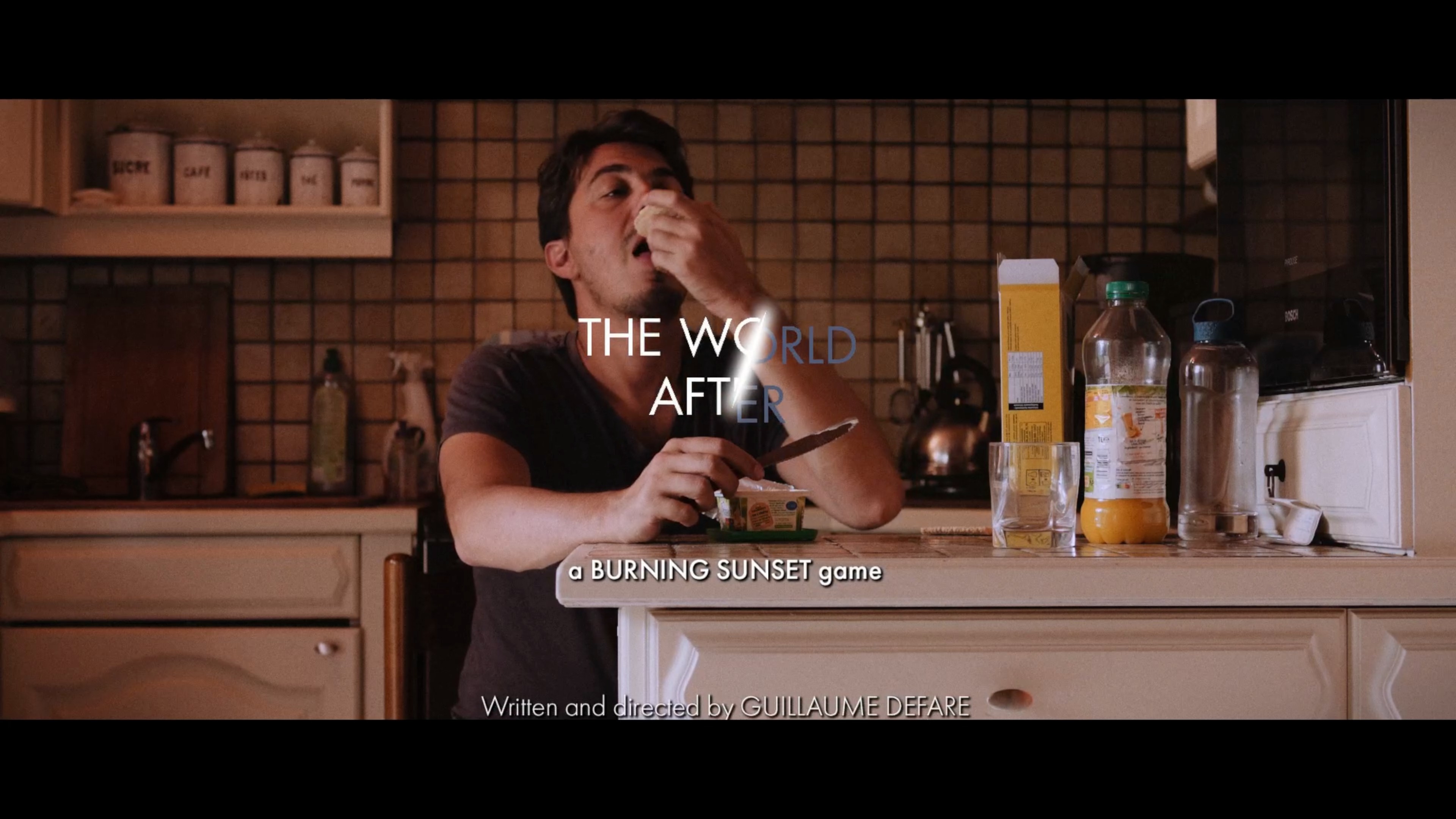
In the "bad" ending, though, instead of the non-resolution to the not-plot, you're treated to video of the main character back at home eating rusk/graham crackers and cream cheese. Which arguably is the better denouement.
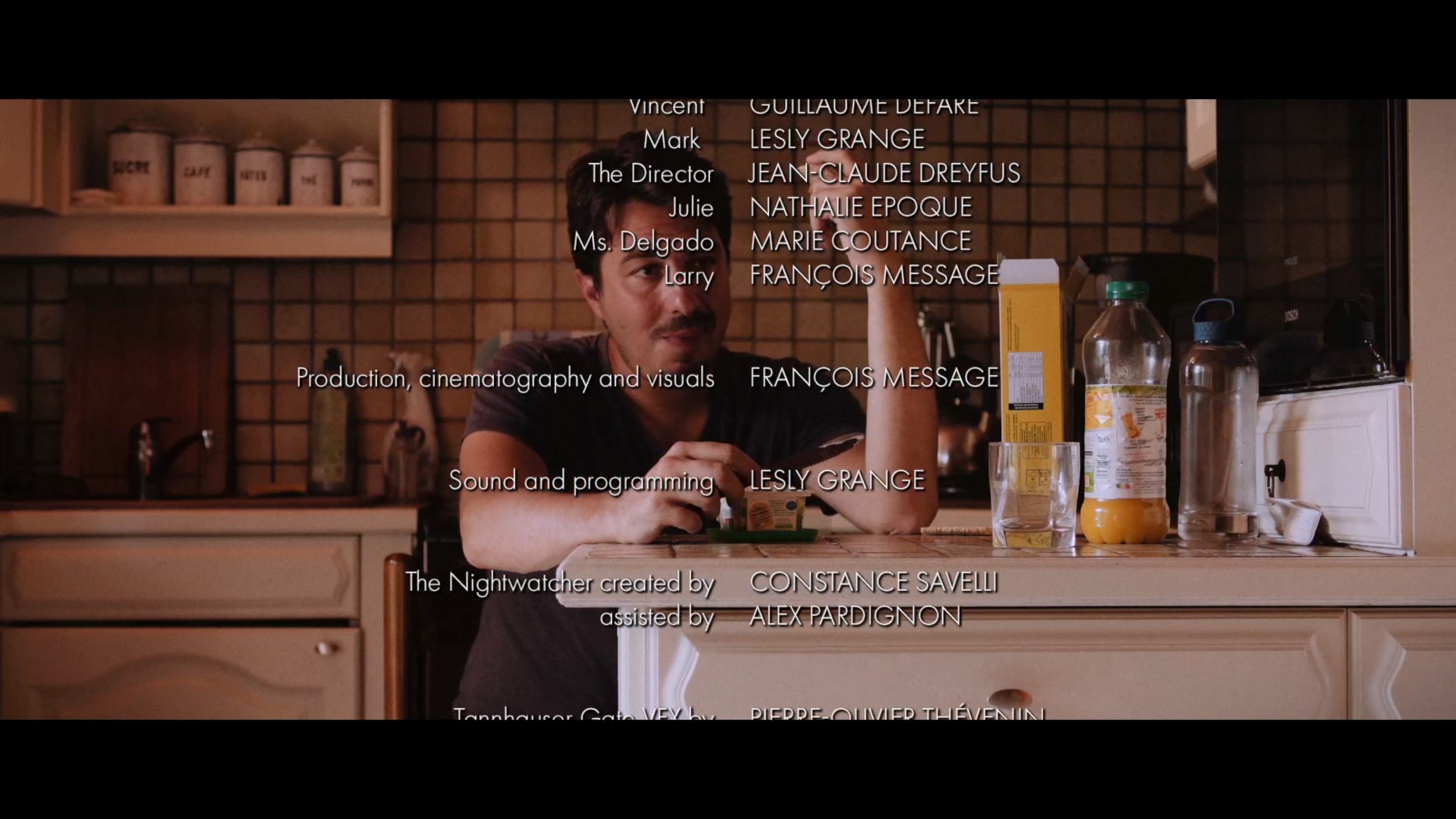
Jeff Gerstmann was doing his weekly NES ranking show today, and one of the games under review was Chubby Cherub, an obscure title where you're a demented-looking little angel going around avoiding cute dogs who shoot "B"s at you (to symbolize their little barks) while scarfing down food Adventure Island-style. The game's originally from Japan, so the food, of course, includes dango and rice balls. Naturally, they're not labeled as such in the U.S. manual, and while this is a predecessor to a long line of later properties adapting Japanese dishes as jelly donuts and hamburgers, well, does this look like a hamburger to you?

Even Alex Kidd back then had the good grace to replace the sprite.
Breaking radio silence after one day, but it's "low content mode," not "no content mode." I was searching through Maximilian's posts for playthroughs of old games like his Zelda LP and hit upon this Mega Man 2 video...in which he starts with Flash Man, the mad lad. (Can't say it didn't work out well for him, though.) When called out by the chat, he asks if this is not the obvious pick and questions if the honor doesn't belong to Bubble Man instead. (Oddly, this isn't, I don't think, the first time I've heard about Bubble Man as first pick, but though I recall the source was from way back - like, from the era of How to Win at Nintendo Games, which I checked, but no dice.)

As a convert to the church of Metal Man, I hit up the manual and found out that the conventional wisdom that Air Man comes first evidently originates with a suggestion from the U.S. manual, which provides a walkthrough of his stage and boss fight. (It's even worded to help the presumably-younger player follow the printed instructions during gameplay: "Push the START button to pause at the end of each section. (Remember: You must push START again to return to the game.)")
I was going to ask at this point, "well, if this originates with the U.S. manual ('cause it's not in the Japanese one), then how does this explain 'Airman ga Taosenai'?", but a rewatch explains it: the hapless player in the song can't get past the disappearing blocks in Heat Man's stage and is trying to get Item 2 to bypass them, but he needs to beat Air Man to get Item 2 and finds out...well. Then he tries to beat Wood Man for the Leaf Shield but can't do that either. Maybe he should have started with Flash Man instead.
Please enjoy this rendition from the U.S. manual of a 1-up:
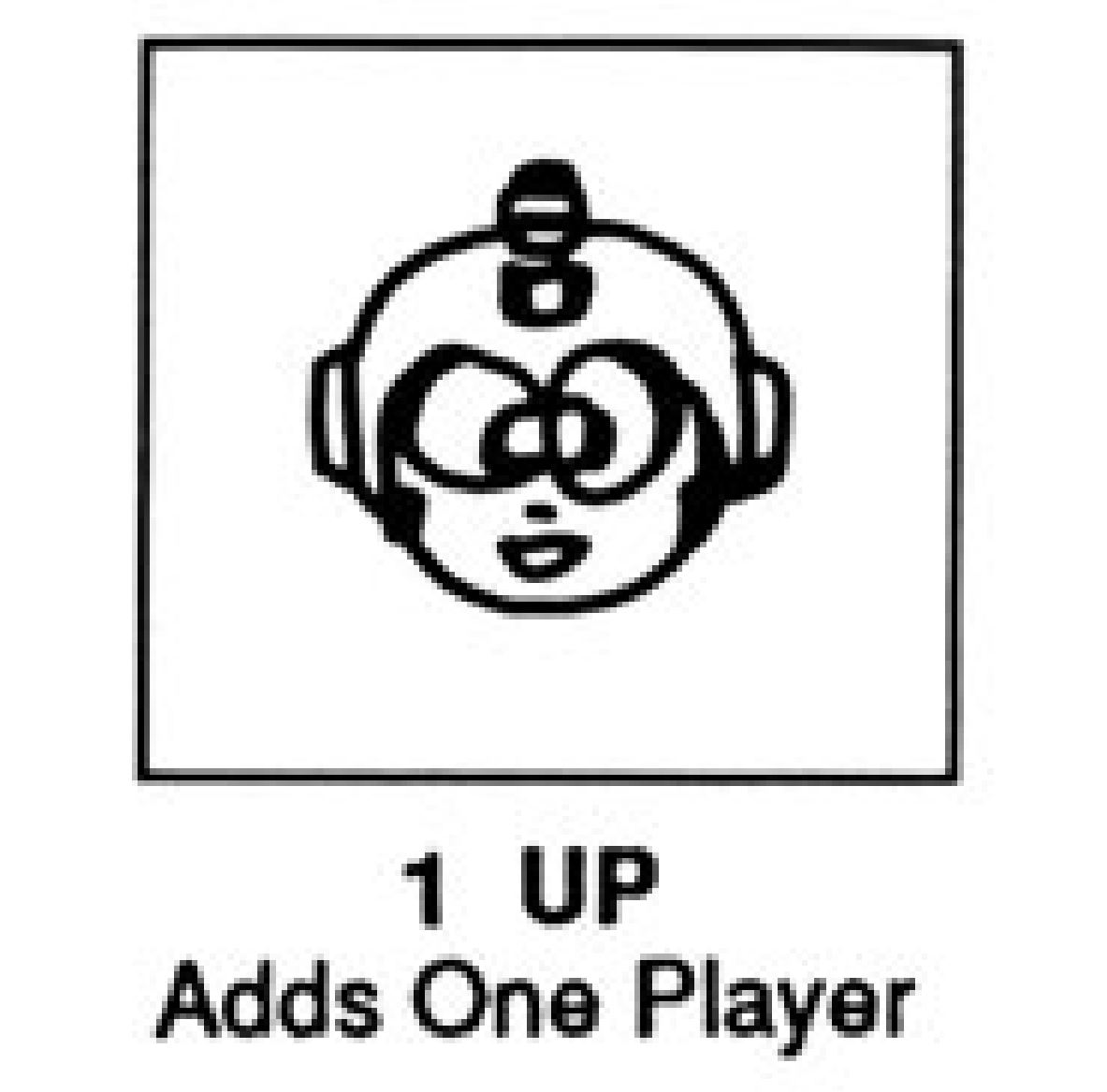
Someone really liked tracing the Japanese art with a chunky marker:
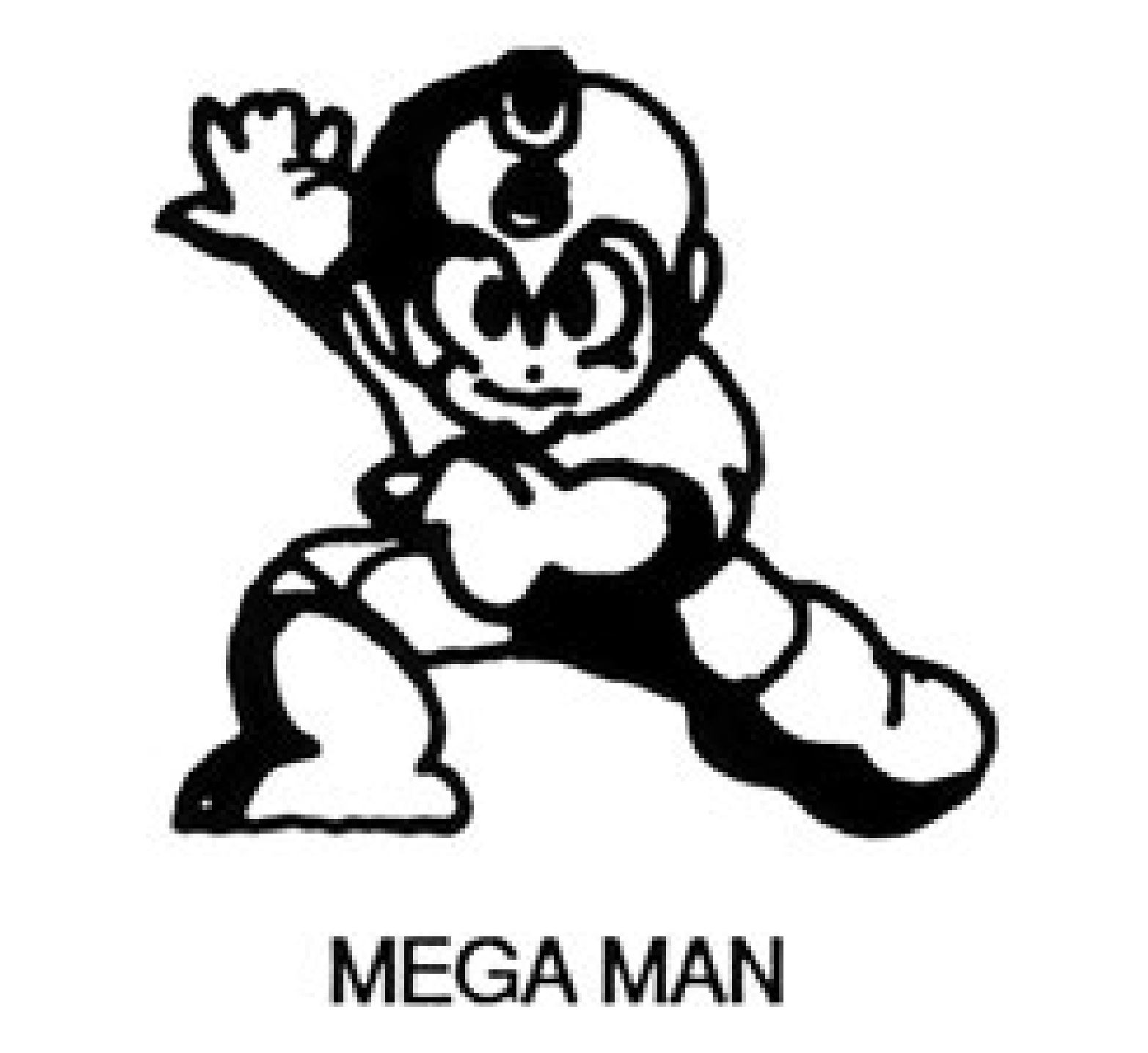
(Oddly, the art for the Robot Masters is presented in the manual inviolate and untraced.)
Fake ETA: Upon a reread, I discovered that the manual gives somewhat contradictory advice about which robot to face first:

I suppose that's not surprising, though, since it can't decide whether the "Man" in the robot names is separate or not, either. In fairness, neither can I.
Page 9 of 56
